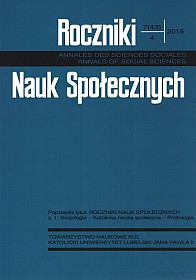The Right to Personal Liberty in the Madagascar
Abstract
Madagascar, like most African countries signed and ratified International fundamental human rights conventions. However ratified international conventions do not ensure full protection of human rights in Madagascar. One of the rights commonly broken by the authorities and by Madagascar Justice is the right to personal liberty and the right to defence by the justice system. Often there are unlawful and unjust imprisonments (that can last for years) of accused persons without a decisions of the courts. Also, there is illegal retention of members of the (political) opposition. Madagascar prisons do not meet minimum provisions for the life of inmates. The reasons for this human rights violation on the one hand points to the difficult socio-economic situation of the country (poverty and high illiteracy) and on the other hand the cultural context, particularly the idea fihavanana, which is based on the principle of group solidarity.
References
Afrykańska Karta Praw Człowieka i Ludów, w: M. Zubik (red.), Księga jubileuszowa rzecznika praw obywatelskich, t. II: Wybór dokumentów prawa międzynarodowego dotyczących praw człowieka, Warszawa: Biuro Rzecznika Praw Obywatelskich 2008, s. 121-129.
Ambassade des Etats-Unis − Antananarivo-Madagascar, Madagascar – rapport 2012 sur les droits humains. Résumé analytique; http://french.madagascar.usembassy.gov/root/la-relation-americano-malgache2/madagascar-rapport-2012-sur-les-droits-humains.html [dostęp: 5.05. 2015].
Amnesty International, February 2010, Madagascar: Urgent need for justice, human rights violations during the political crisis, https://www.amnesty.org/.../afr350012010en.pdf [dostęp: 3.09.2014).
Amnesty International, Raport 2013. La situation des droits humains dans le monde. Madagascar, http://www.amnesty.org/fr/region/madagascar/report-2013 [dostęp: 3.09.2014].
Amnesty International, Madagascar. Il faut mettre fin aux massacres et enquêter sur les forces de sécurité, www.amnesty.org/fr/news/madagasacar [dostęp: 3.09.2014].
Benolo F., Réfléxions sur la culture malgache pour une contribution à l’inculturation à Madagascar, „Aspects du Christianisme à Madagascar” 6(1996), s. 242-262.
Comite des Droit de l’Homme Nations Unies, La situation des droit de l’homme a Madagascar, Rapport alternatif complementaire a celui des ONG nationales, 2007, http://www.omct.org/files/2005/09/3065/rapport_alt_madagascar_89th_hrc_07_fr.pdf
FIACAT et ACAT Madagascar: Contribution au deuxième examen de Madagascar, Conseil des droits de l’homme Deuxième Cycle de l’Examen périodique universel 20ème Session, 27 octobre – 7 novembre 2014, s. 10-11, http://www.fiacat.org/IMG/pdf/Rapport_EPU_Mada_final.pdf [dostęp: 5.05.2015].
Gadille J., Étèvenaux J., La culture malgache ne s’oppose pas au développement, „Magazine d’information spirituelle et de solidarité internationale” 75(2001), s. 14-15.
Institut National de la Statistic Madagascar, http://www.instat.mg/index.php?option=com_content&view=article&id=37&Itemid=62 [dostęp: 3.09.2013].
Lendzion K., Troska o więźniów w parafii Mainadrivazo na Madagaskarze, w: L. Szot (red.), Ludzie ubodzy i ofiary wojny jako odbiorcy pomocy charytatywno-humanitarnej, Warszawa: Caritas Ordynariatu Polowego Wojska Polskiego 2010, s. 131-146.
Lendzion K., Madagaskar − demokracja i liberalny kapitalizm a rozwój kraju, w: W. Misztal, A. Kościański, G. Chimiak (red.), Obywatele wobec kryzysu: uśpieni czy innowatory, Warszawa: IFIS PAN 2015, s. 211-213.
Maier H., Droits de l’homme et dignité humaine à Madagascar, Un pays cherche sa voie, Missio 36/2010, s. 34-46, http://www.missio-hilft.de/media/thema/menschenrechte/studie/36-madagascar-fr.pdf [dostęp: 13.09.2014].
Michałowska G., Problemy ochrony praw człowieka w Afryce, Warszawa: SCHOLAR 2008.
Rajoelison G., Autorité, pouvoir et obéissance dans la société malgche, „Aspects du Christianisme á Madagascar” 3(2002), s. 35-44.
Ramaroson B., Fihavanana – Fianakaviana – vie communautaire (pour une inculturation de la vie consacrée), „Aspects du Christianisme à Madagascar” 3(1995), s. 123-138.
The world Bank, Madagascar: Measuring the Impact of J.the Political Crisis, http://www.worldbank.org/en/news/feature/2013/06/05/madagascar-measuring-the-impact-of-the-political-crisis [dostęp: 3.09.2014].
Tiersonnier J., Madagascar. Les missionnaires acteurs du développement, Paryż: Harmmatan 2001.
UNESCO e-Atlas of Literacy, http://tellmaps.com/uis/literacy/ [dostęp: 6.06.2015].
Urfer S., La crise et le rebond. Aprés 50 ans d’independance malgache, Anatananarivo: Foi et Jusctice 2010.
Urfer S., Madagascar une culture en peril?, Antananarivo: no comment editions 2012.
Copyright (c) 2015 Roczniki Nauk Społecznych

This work is licensed under a Creative Commons Attribution-NonCommercial-NoDerivatives 4.0 International License.


